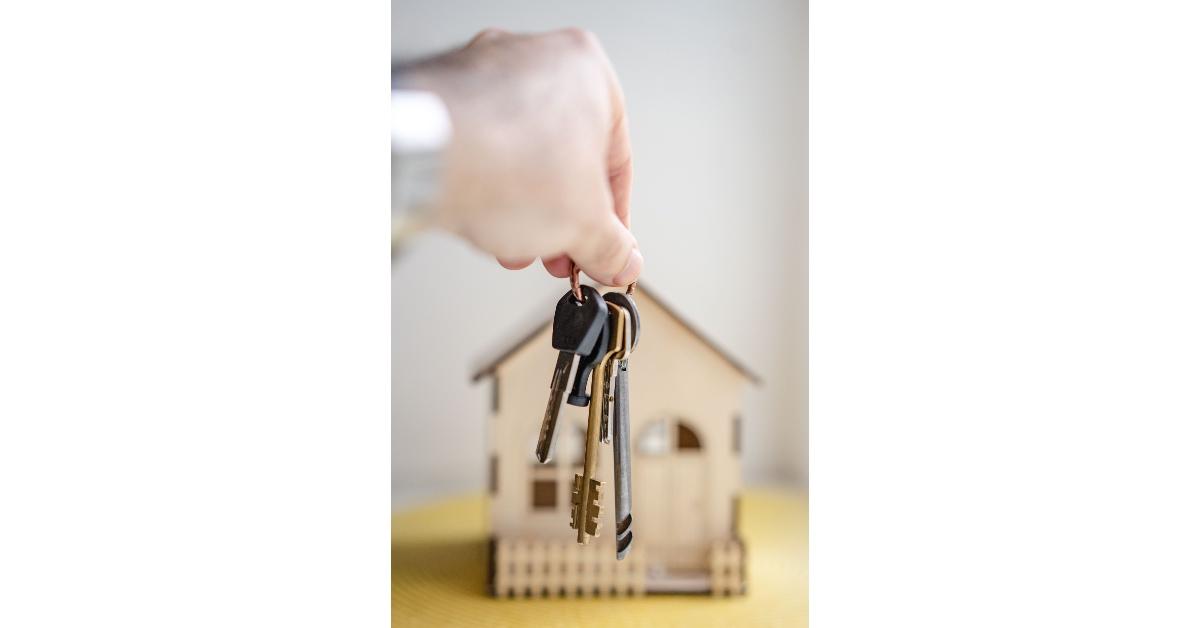Breaking Down the Time It Takes to Buy a House From Start to Close
Buying a house takes time, on average about 4.5 months. First, you'll need to determine your budget and start saving. Next, you'll need to learn the market.
June 15 2022, Published 3:17 p.m. ET

The home buying process is exciting, new, and even a little nerve-racking, but it's one you can’t exactly rush through. Buying a house takes time, on average about 4.5 months, according to Zillow. That estimate doesn't include the number of days it will take to close. Of course, the timeline may vary as you may be more or less prepared than the average homebuyer.
Now, if you’re serious about buying a home, here’s how long it may take you to complete each phase of the home buying process along with the steps that can help you become better prepared for it.
During the first phase of the home buying process, you’ll want to set a budget and start saving.

Before you begin looking for homes that meet the criteria on your checklist, you need to know how much you can spend. Can you afford a home between $200,000 and $250,000, or is your budget a little more flexible?
The total cost of a home will determine how much you’ll need for a down payment and to satisfy the closing costs. Most people usually need about 20 percent of the purchase price to cover their down payment and between 2 percent and 5 percent of the total cost of the home to cover closing costs, according to Zillow.
Now, because most people don’t have large sums of money sitting around ready to be spent, you may need to take some time to save for your down payment. The length of time it will take for you to save depends on your income and monthly budget. If you’re able to, it's a good idea to start reducing your monthly expenses as much as possible so you’re able to save quicker for your downpayment and closing costs.
In order to determine how much you can afford to spend each month on your mortgage, consider using Zillow or Wells Fargo’s affordability calculator. Before you’re able to find out what you can afford, you’ll need specific information including your annual income, monthly debts, and down payment amount.
You might also need to spend some time focusing on your credit score as your credit history will impact the lender’s decision and your mortgage rates.
Once you know how much you can spend on a mortgage, start familiarizing yourself with the market.

Finding the right home in the ideal location isn’t always easy, so don’t get too discouraged if you don’t come across a house that meets all your needs and falls within your budget. During your initial home search, you aren’t exactly choosing which house you want to buy. Instead, you’re using it as an opportunity to get a feel for the market.
Are the homes in your ideal location affordable? Is the inventory low in that particular area? If so, you might want to consider looking around neighboring areas with a wider selection of houses.

Now, it's time to get pre-approved for a mortgage — here’s how long it might take.
After taking some time to consider what homes are on the market and how much they’re selling for, you’ll want to start the pre-approval process. To do this, you’ll need to identify a lender or mortgage broker you’d like to work with. You’ll need to gather various forms of documentation in order for the lender to determine if you qualify for a loan and how much.
Some of the documents you’ll need to get pre-approved for a mortgage include:
- Pay stubs
- Tax returns, W-2s, and/or 1099s
- Bank statements
- Retirement account statements
- Record of rent or mortgage payments
- Bankruptcy documentation
While it may take a few days for you to gather all of this, you may have to wait 3–5 days longer to find out if the lender has pre-approved you. If you’re working with a lender that has a quick turnaround time, you may get a response within a day or two regarding your pre-approval status.
To help speed up the pre-approval process for a mortgage, be sure you provide your lender with all the required documentation and fill out your forms completely and accurately.
After receiving your pre-approval letter, it’s time to start house hunting — here’s how long that could take.
Now that you know how much you can afford and have received a pre-approval notice (these typically stay valid for 60–90 days), it’s time to start house hunting. While the amount of time it takes a person to find the perfect home varies, data collected by the National Association of Realtors suggests that it takes roughly eight weeks of searching before a person settles on a home.
It’s also worth noting that homebuyers in 2021 viewed 8–10 homes before finding the home they wanted to purchase.
One way to help speed up the home buying process is by hiring a real estate agent who's eager and excited to help you find a house. Be sure you lay out your list of demands early on, and also include the areas you're willing to compromise on. Should a home that meets your criteria come available, have your agent schedule a viewing as soon as possible.
Additionally, you may want to conduct online searches using websites like Zillow, Realtor.com, Trulia, and FSBO.com (For Sale By Owner) to see what homes are available and in your price range. If you come across a listing you like, notify your realtor ASAP so they can gather more details on the property.
If you find a home you like, put in an offer.

Finding a home you love is one piece of the puzzle, and getting your offer accepted is another. Once you come across a home that checks all the boxes on your list, put in an offer. You’ll want to discuss with your realtor what a reasonable offer looks like to ensure you’re coming in with a sensible amount.
If the home is high in demand or the buyer has other offers on the table, it would be wise to come in with a competitive offer. This can help increase your chances of getting it accepted over others.
How long does it take to hear back after putting in an offer on a house?
While there isn't a set deadline for when a seller has to respond to your offer, it's common to receive a response within 24–48 hours, according to Realtor.com. Of course, if your offer is submitted on a Friday evening, you may have to wait longer, depending on the hours the realtors involved work.
If the seller rejects your offer, a negotiation may ensue, which means you could find yourself going back and forth with the seller and/or their realtor until both parties are satisfied. This could tack on a few extra days. If you can’t reach a happy medium, the deal could fall through and you may need to continue with your search.
But, if the seller accepts your offer, then it's time to get your mortgage documents filled out and submitted.
How long does it take to get a mortgage?
Whether you went through the pre-approval process or not, you’ll need to obtain full approval for a mortgage after your offer has been accepted. The period between getting your offer accepted, securing financing (getting approved for a mortgage), and taking possession of the home (closing) is referred to as the escrow process.
The escrow process typically takes 30–45 days to complete, though it may take longer depending on your lender’s processing times, and of course, market behavior. If you’re currently renting an apartment, it’s a good idea to notify your landlord before entering escrow of your intention to move as most require at least 30 days’ notice.
Here’s what happens when you enter escrow.
If you’ve made an offer on a home and the seller accepted it, an escrow account will need to be opened. The selling agent is typically responsible for opening the escrow account through a title company, according to Zillow. There are two things the escrow account is good for:
- To hold and disburse the funds needed to seal the deal.
- To hold earnest money. Earnest money is the money you put into the escrow account that lets the seller know you’re serious and don’t intend on backing out.
While in escrow, certain conditions will need to be met before you can close. Some examples of these conditions include getting the home appraised, conducting a title search to ensure no liens have been issued on the property, and getting approved for a mortgage.
Once both parties have met all the terms outlined in the purchase agreement, then the transaction can be processed and you can receive the keys to your new home.
Any money placed in escrow as earnest money remains in the escrow account until all the terms and conditions are met. Once this happens, the earnest money is usually applied to the purchase price.

How long will it take to close on a house?
As previously mentioned, it can take anywhere between 30 and 45 days to close on a house or longer. This is the average time it takes a buyer and seller to enter and exit the escrow process. While some are able to get through the closing process quicker than others, there are a number of factors that can prolong the closing process.
For example, if the home has damage and the seller agrees to make the requested repairs, you would need to wait for the repairs to be completed before escrow can close. Here are a few other reasons why it can take a long time to close on a house:
- The buyer needs to submit additional documentation before they can get approved for a mortgage.
- There are title issues.
- One or both parties fail to meet the terms and conditions.
- Additional structural issues are identified after the initial repairs are made.
If you’re entering the home buying process with an all-cash offer and you aren’t too concerned about the home’s history (which isn’t always recommended), then your closing timeframe will likely be reduced significantly. If you’re ready to buy a house, it’s a good idea to enlist the help of an experienced realtor who can walk you through the process.
